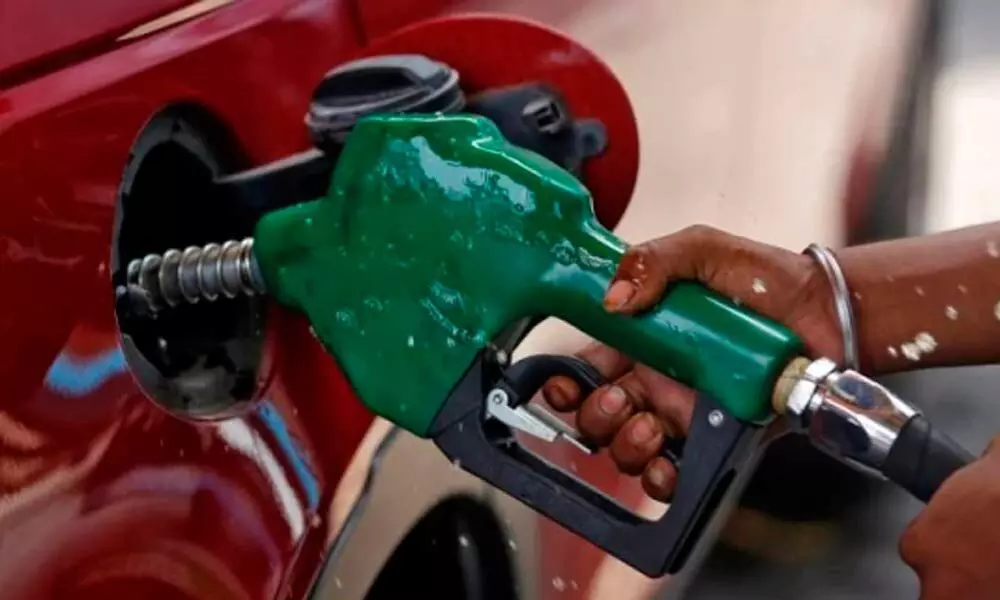No change in petrol, diesel prices for 8th consecutive day
Oil marketing companies continued to hold back any change in the retail price of petrol and diesel continuing with their wait and watch stance that has kept the prices of two auto fuels static for the past eight days.
image for illustrative purpose

New Delhi, Dec 15 Oil marketing companies continued to hold back any change in the retail price of petrol and diesel continuing with their wait and watch stance that has kept the prices of two auto fuels static for the past eight days.
Accordingly, there was no change in retail price of auto fuels on Tuesday with price of petrol remaining at Rs 83.71 a litre and diesel Rs 73.87 a litre in Delhi. Across the country as well the price of the two petroleum products remained unchanged.
OMCs have gone on a pause mode at a time when news of successful coronavirus and expectations of big pick up in demand had kept crude on the boil with prices breaching $ 50 a barrel mark. Crude, however, has remained static for the last few days reducing any pressure on upward revision in the fuel prices.
Petrol prices was very close to breaching the all time high level of Rs 84 a litre (reached on October 4, 2018) when it touched Rs 83.71 a litre on Monday. But the march has been halted ever since then with no price revision by the OMCs.
Global crude prices have risen almost $ 10 a barrel in the last one month to reaching over $ 50 a barrel now. But even at this level, it is far less than average crude price of $ 80.08 a barrel in October 2018 when petrol price reached a high of Rs 84 a litre in the Capital.
With Tuesday's pause, fuel prices have now increased on 15 of the past 26 days with petrol prices rising by Rs 2.65 per litre and diesel by 3.41 a litre.
Petrol prices had been static since September 22, and diesel rates hadn't changed since October 2.
Though retail pricing of petrol and diesel has been deregulated and oil marketing companies were following a daily price revision formula, the same was suspended for almost two months to prevent volatility in international oil markets from impacting fuel prices regularly during the pandemic.

